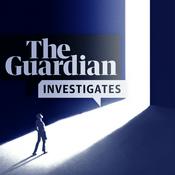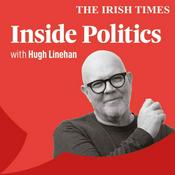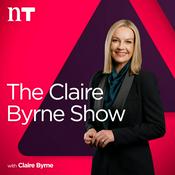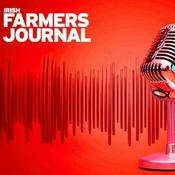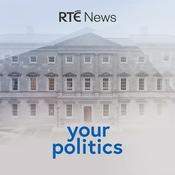339 episodes
- Become a paid subscriber to our newsletter/podcast, The Climate Weekly, to help support this show! It's fun. All the cool kids are doing it!
-------------
It's the 10th anniversary of the Paris Agreement. In this new series from The Climate Pod, we're looking back on the global pact to determine: how have things changed since 2015 and what has the Paris Agreement accomplished? Our first two episodes were on extreme heat and adaptation.
This week, we're looking at the massive gap that exists between the goals of the Paris Agreement and the current state of progress. In the decade that has past since the Paris Agreement was signed, what has changed with the biggest causes of emissions? How far off track are global efforts today? Where are the biggest gaps?
To answer these questions, we're joined by Clea Schumer and Sophie Boehm, two of the lead authors on the Systems Change Lab's latest report, State of Climate Action 2025. As they note in the report, "although more than three-quarters of indicators are heading in the right direction, progress is alarmingly inadequate, exposing communities, economies and ecosystems to unacceptable risks." We look at all these indicators to determine what needs to happen now and how we understand the complexity of the current moment. We talk about the state of energy, land use and agriculture, transporation, carbon dioxide removal, and much more.
You can read State of Climate Action 2025 here
Please consider becoming a paid subscriber to our newsletter/podcast, The Climate Weekly, to help support this show. Your contributions will make the continuation of this show possible.
Mentioned in the show: Oliver Milman's article on "Coalie"
Our music is "Gotta Get Up" by The Passion Hifi, check out his music at thepassionhifi.com. Rate, review and subscribe to this podcast on iTunes, Spotify, and more! Subscribe to our YouTube channel. - Become a paid subscriber to our newsletter/podcast, The Climate Weekly, to help support this show! It's fun. All the cool kids are doing it!
--------------------
This episode is another discussion between two Americans talking about climate action. To say it's a weird time to focus on climate action seems like a wild understatement. But the reality is even in the face of rising fascism, the climate crisis doesn't stop. There's much happening now that will only speed it up. So what do we do about it?
On today's show, we discuss how to act in this perilous moment with Ryan Hagan, author of Your Guide to Climate Action. Hagen has spent countless hours researching and writing about the way you can make the greatest impact in your own life. In this episode, I ask him about his journey in climate action and how setting intentions has guiding his work. We also talk about the importance of engaging in local activism and finding our own unique, personal paths to contribute to a more climate-safe future. We also explore many practical steps we can all take to align our actions with our values, including financial decisions, job opportunities, changing our companies, local governments, and schools.
Read Your Guide to Climate Action: How to move beyond your footprint and make a BIG impact
Please consider becoming a paid subscriber to our newsletter/podcast, The Climate Weekly, to help support this show. Your contributions will make the continuation of this show possible.
Our music is "Gotta Get Up" by The Passion Hifi, check out his music at thepassionhifi.com. Rate, review and subscribe to this podcast on iTunes, Spotify, and more! Subscribe to our YouTube channel. - Become a paid subscriber to our newsletter/podcast, The Climate Weekly, to help support this show! It's fun. All the cool kids are doing it!
--------------------
Before the end of the year, I had my annual conversation with the always wonderful Evlondo Cooper, senior writer with the climate and energy program at Media Matters. In this conversation, we explore the new challenges of climate reporting that we saw unfold in the politically charged environment of 2025. We looke at the specific changes under the Trump administration and how a continued lack of diverse voices in climate coverage is helping to contribute to the disconnect between climate issues and political discourse. Additionally, Cooper tracks the ongoing missing context in major climate events of recent years, especially around climate solutions and harms. We look at the role of media in holding politicians accountable, the gaps in current coverage, and how climate media problems visible in recent years may actually be getting worse.
You can follow all of Evlondo's coverage here.
Please consider becoming a paid subscriber to our newsletter/podcast, The Climate Weekly, to help support this show. Your contributions will make the continuation of this show possible.
Our music is "Gotta Get Up" by The Passion Hifi, check out his music at thepassionhifi.com. Rate, review and subscribe to this podcast on iTunes, Spotify, and more! Subscribe to our YouTube channel. - Become a paid subscriber to our newsletter/podcast, The Climate Weekly, to help support this show! It's fun. All the cool kids are doing it!
--------------------
This week, we explore a fundamental question at the heart of the climate crisis: why are so many people willing to destory the environment? This is something I think about a lot and can be infurating. It's also a more complicated story when you really dig into the motivators.
To find out why environmental crims happens, Dr. Julia Shaw, a criminal psychologist and author of Green Crime: Inside the Minds of the People Destroying the Planet, and How to Stop Them, is on the show. She explains the intersection of criminal psychology and environmental issues and why she wanted to take on this incredibly important and complex subject. Shaw outlines the six psychological pillars that motivate environmental crimes and how motivators often differ greatly by income and levels of power. We also talk abou the murder of environmental defenders, the complexities of land ownership and stewardship, the psychology behind poaching, and the impact of misinformation has on environmental action. Shaw also explains how existing laws and regulations can help combat environmental crimes effectively.
Read: Green Crime: Inside the Minds of the People Destroying the Planet, and How to Stop Them
Please consider becoming a paid subscriber to our newsletter/podcast, The Climate Weekly, to help support this show. Your contributions will make the continuation of this show possible.
Our music is "Gotta Get Up" by The Passion Hifi, check out his music at thepassionhifi.com. Rate, review and subscribe to this podcast on iTunes, Spotify, and more! Subscribe to our YouTube channel. A Fascinating, In-Depth Look At The State Of The Global Environment (w/ Sir Professor Robert Watson)
12/12/2025 | 45 mins.Become a paid subscriber to our newsletter/podcast, The Climate Weekly, to help support this show! It's fun. All the cool kids are doing it!
------
This week, we're taking a deep dive into the UNEP fascinating, new Global Environment Outlook with legendary climate scientist Sir Professor Robert Watson. We discuss the state (and accelerating pace) of global warming and environmental destruction. Watson explains how emissions continue to climb, what's happened since the Paris Agreement, the state of biodiversity loss, land degradation, and air pollution, and much more. He also explains the transformative investments and changes needed to come anywhere close to international environmental and climate agreements.
Sir Professor Robert Watson, Former co-chair of IPCC and IPBES and former chief scientific advisor in the Office of Science and Technology Policy, White House during the Clinton presidency. He is also one of the lead authors report of the 7th edition of UNEP's Global Environment Outlook Report.
Please consider becoming a paid subscriber to our newsletter/podcast, The Climate Weekly, to help support this show. Your contributions will make the continuation of this show possible.
Our music is "Gotta Get Up" by The Passion Hifi, check out his music at thepassionhifi.com. Rate, review and subscribe to this podcast on iTunes, Spotify, and more! Subscribe to our YouTube channel.
More News podcasts
Trending News podcasts
About The Climate Pod
The Climate Pod is a wide-ranging conversation with leading experts on the politics, economics, activism, culture, science, and social justice issues at the heart of the climate crisis. Hear from guests like Jane Goodall, Bill McKibben, Al Roker, David Wallace-Wells, Katharine Hayhoe, Adam McKay, Bill Nye, Robert Bullard, Catherine Coleman Flowers, Ted Danson, Gina McCarthy, Paul Krugman, and many more. Hosted by Brock Benefiel and Ty Benefiel.
Podcast websiteListen to The Climate Pod, The David McWilliams Podcast and many other podcasts from around the world with the radio.net app

Get the free radio.net app
- Stations and podcasts to bookmark
- Stream via Wi-Fi or Bluetooth
- Supports Carplay & Android Auto
- Many other app features
Get the free radio.net app
- Stations and podcasts to bookmark
- Stream via Wi-Fi or Bluetooth
- Supports Carplay & Android Auto
- Many other app features


The Climate Pod
Scan code,
download the app,
start listening.
download the app,
start listening.



